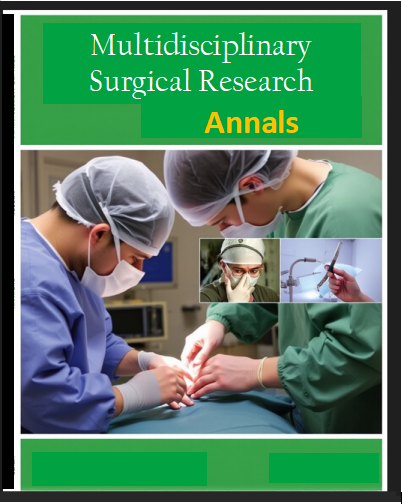Risk Factors of Placenta Accreta Spectrum (Morbidly Adherent Placenta)
Abstract
Objectives: The primary objective of this study is to determine the frequency and association of risk factors for placenta accreta spectrum (PAS) in patients diagnosed with and without the condition. The study aims to evaluate these risk factors and assess their significance in influencing the occurrence of PAS, contributing to better clinical management strategies.Study Design: This research employs a case-control study design, where patients diagnosed with placenta accreta spectrum will be compared with those who do not have the condition. This design will allow for the identification of significant risk factors and their association with PAS. Place and Duration of Study: The study is conducted in the Department of Obstetrics and Gynecology, Shaikh Zayed Hospital, Lahore, from 15 January 2025 to 26 May 2025. Methodology: The study involves the inclusion of 100 females (50 cases and 50 controls), aged 20-45 years, with singleton pregnancies and gestational age greater than 32 weeks. Data on risk factors such as previous cesarean sections, uterine surgeries, uterine diseases, advanced maternal age, high parity, and smoking history were collected. Analysis will be done using SPSS version 26, with odds ratios and chi-square tests used to measure associations. Results: The study found significant associations between several risk factors and the development of PAS. Advanced maternal age (≥35 years) and previous cesarean deliveries emerged as the most significant predictors. The odds ratio for patients with advanced maternal age was 5.2, indicating a strong association with PAS. Conclusion: Placenta accreta spectrum is strongly associated with previous cesarean deliveries, advanced maternal age, and uterine surgeries. Early identification of these risk factors is essential for reducing maternal and fetal complications. This study contributes to the growing body of knowledge regarding the clinical management of PAS and helps to improve patient outcomes.
Keywords: Placenta accreta spectrum, risk factors, cesarean delivery, advanced maternal age, uterine surgery, obstetrics, case-control study, Shaikh Zayed Hospital.




